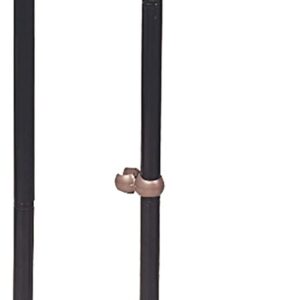Parasite-Free Pets: A Complete Guide to Preventing and Managing Common Parasites in Indoor Pets

Pets are an integral part of our lives, and we often do everything we can to make sure they are healthy and happy. However, one thing that many pet owners overlook is the prevention and management of common parasites in indoor pets.
Parasites can cause serious health problems for your furry friends and can even be transmitted to humans in some cases.
Preventing and managing parasites in indoor pets is not only essential for their health and well-being, but it’s also crucial for your family’s health. Many parasites can be transmitted from pets to humans, causing illnesses like Lyme disease, tapeworm infections, and more. By taking proactive measures to prevent and manage parasites in your pets, you’ll not only protect your furry friends but your family as well.
So, whether you’re a seasoned pet owner or a new pet parent, this guide will provide you with the knowledge and tools you need to keep your pets healthy and parasite-free. Let’s dive in and explore the world of common parasites in indoor pets.
Types of Parasites that Affect Indoor Pets
- Fleas
Fleas are the most common parasite that affects indoor pets. They can jump from one pet to another and can also infest your home. Fleas can cause your pet to itch and scratch excessively, leading to skin irritations, hair loss, and even anemia in severe cases. Fleas can also transmit tapeworms, which can cause digestive problems in your pet.
- Ticks
Ticks are another common parasite that affects indoor pets. They can attach themselves to your pet’s skin and feed on their blood. Ticks can transmit diseases such as Lyme disease and Rocky Mountain spotted fever, which can be fatal if left untreated.
Check out ShengKou Tick and Flea Collar for Dogs
- Heartworms
Heartworms are a type of parasitic worm that can live in your pet’s heart and lungs. They are transmitted by mosquitoes and can cause heart failure, lung disease, and even death in severe cases.
- Intestinal Parasites
Intestinal parasites such as roundworms, hookworms, and whipworms can affect indoor pets. They can cause diarrhea, weight loss, and other digestive problems. Intestinal parasites can also be transmitted to humans, especially young children, who are more vulnerable to infection.

Prevention of Parasites in Indoor Pets
Prevention of parasites in indoor pets is crucial to ensure the health and well-being of your furry friends. Even though they are not exposed to the outdoors, indoor pets are still at risk of getting infected by parasites, which can cause a range of health problems. Here are 15 points in detail about how to prevent parasites in indoor pets:
1)Keep your pet’s environment clean
Regularly clean your pet’s living area, bedding, and toys to prevent parasites from thriving in the area.
2) Use flea and tick prevention products
Even if your pet doesn’t go outside, they can still be exposed to fleas and ticks, which can easily make their way into your home. Use flea and tick prevention products recommended by your veterinarian to keep them at bay.
3) Regularly groom your pet
Regular grooming not only helps your pet look and feel good but also helps prevent parasites. Brushing and bathing your pet regularly can help remove any parasites that may be hiding in their fur. This will also help you detect any skin irritations or other health problems that may be affecting your pet.
4) Check your pet for signs of parasites
Check your pet’s fur for signs of fleas and ticks, and check their skin for any bumps or sores that could be caused by parasites.
Using parasite preventatives is essential in preventing parasites from affecting your indoor pets. There are various preventatives available, such as flea and tick collars, topical treatments, and oral medications. Consult with your veterinarian to determine the best preventative for your pet.
5) Keep your home clean
Keeping your home clean is the first step in preventing parasites from infesting your indoor pets. Vacuum your carpets and furniture regularly and wash your pet’s bedding and toys often. This will help remove any fleas or flea eggs that may be present in your home.
6) Use natural remedies
There are many natural remedies that can help prevent parasites, such as apple cider vinegar and essential oils. However, it’s important to talk to your veterinarian before using any of these remedies.
7) Practice good hygiene
Good hygiene is essential for preventing parasites. Wash your hands after handling your pet, and make sure your pet’s food and water dishes are cleaned regularly.
8) Keep your pet away from other animals
Parasites can be easily spread from one animal to another, so it’s important to keep your pet away from other animals that may be carrying parasites.
Keeping your pet indoors can prevent them from being exposed to parasites that may be present in your yard or in the environment. This is especially important if your pet has a compromised immune system or if they are too young or too old to fight off infections.
9) Keep your pet up-to-date on vaccinations
Vaccinations not only protect your pet from diseases but also help prevent the spread of parasites.
10) Use preventatives for heartworms
Heartworms are a serious parasite that can cause severe health problems in dogs and cats. Use preventatives recommended by your veterinarian to keep your pet safe.
11) Keep your pet’s immune system healthy
A healthy immune system can help prevent parasites. Feed your pet a nutritious diet, provide plenty of exercise, and keep them up-to-date on regular check-ups with their veterinarian.
12) Treat any infestations promptly
If you notice any signs of a parasite infestation, such as itching, scratching, or bumps on your pet’s skin, seek treatment from your veterinarian right away.
13) Control rodents
Rodents can carry parasites, so it’s important to control their presence in and around your home.
14) Keep your pet’s paws clean
Wipe your pet’s paws with a damp cloth after they have been outside to prevent parasites from entering your home.
15) Use caution when introducing new pets
If you’re introducing a new pet to your home, make sure they are parasite-free before bringing them in. Have them examined by a veterinarian and treated for any parasites before allowing them to interact with your other pets.
Also Read:The 4 Cat Health Issues You Should Know
Management of Parasites in Indoor Pets
- Treat your pet with medication
If your indoor pet becomes infested with parasites, it is essential to treat them with medication. Your veterinarian can prescribe medication to treat fleas, ticks, heartworms, and other parasites. It is important to follow the dosage instructions carefully and continue the treatment until the parasites are completely eliminated.

- Maintain a clean environment
Maintaining a clean environment is essential in managing parasites in indoor pets. Continue to vacuum your carpets and furniture regularly and wash your pet’s bedding and toys often. This will help remove any flea eggs or other parasites that may be present in your home.
- Regular check-ups with your veterinarian
Regular check-ups with your veterinarian can help detect any parasites that may be affecting your indoor pets. Your veterinarian can perform a fecal exam to check for intestinal parasites and can also perform blood tests to check for heartworms and other diseases. It is important to bring your pet to the veterinarian at least once a year for a check-up, even if they appear to be healthy.

- Practice good hygiene
Practicing good hygiene is essential in preventing the spread of parasites from your pet to you or other members of your family. Wash your hands regularly after handling your pet or cleaning up after them. Avoid letting your pet lick your face or mouth, as this can transfer parasites.
- Address any underlying health issues
If your indoor pet has an underlying health issue that is weakening their immune system, it is important to address this issue to prevent parasites from affecting them. Work with your veterinarian to manage any chronic health conditions and keep your pet as healthy as possible.
References
Some reputable websites that provide information on preventing and managing common parasites in indoor pets:
- American Veterinary Medical Association (AVMA): The AVMA provides a comprehensive guide to preventing and managing common parasites in pets, including information on flea and tick control, heartworm prevention, and deworming. (https://www.avma.org/resources/pet-owners/petcare/parasite-prevention-pets)
- ASPCA: The ASPCA provides detailed information on flea and tick control, as well as deworming and heartworm prevention. They also provide advice on how to safely and effectively remove ticks from your pet. (https://www.aspca.org/pet-care/general-pet-care/parasites)
- Centers for Disease Control and Prevention (CDC): The CDC provides information on common parasites that can affect both pets and humans, including roundworms, hookworms, and tapeworms. They also provide advice on how to prevent parasitic infections and what to do if you suspect your pet has a parasitic infection. (https://www.cdc.gov/parasites/animals.html)
- PetMD: PetMD provides information on common parasites, including fleas, ticks, and heartworms. They also provide advice on how to prevent and treat parasitic infections. (https://www.petmd.com/dog/general-health/parasites-protecting-your-dog-and-your-family)
- Merck Veterinary Manual: The Merck Veterinary Manual provides comprehensive information on parasitic infections in pets, including information on diagnosis, treatment, and prevention. (https://www.merckvetmanual.com/dog-owners/disorders-affecting-multiple-body-systems-of-dogs/parasitic-infections-of-dogs).
Conclusion
Preventing and managing common parasites in indoor pets is essential for their health and well-being. With proper preventative measures and prompt treatment, you can keep your pets parasite-free and minimize their risk of developing related illnesses.
Remember to consult with your veterinarian to choose the best parasite preventative and treatment options for your pet, and always follow their instructions carefully. By working together, we can keep our pets happy and healthy for years to come.
Disclaimer: This article may contain affiliate links to products. All product details reflect the price and availability at the time of publication. We may receive a commission for purchases made through these links.



